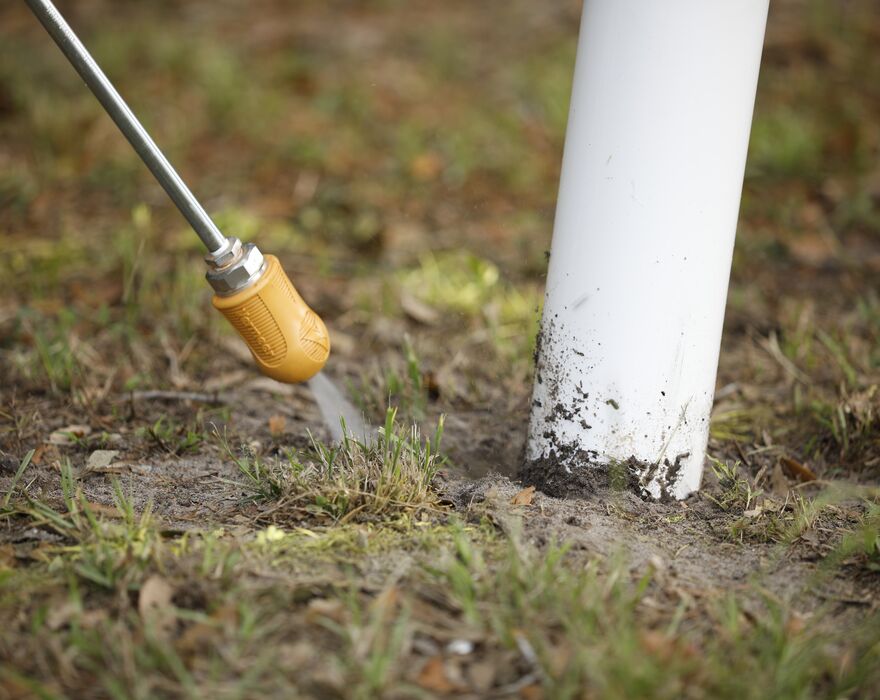Every day, municipalities and rural water associations contend with the complex task of maintaining and repairing underground water and sewer pipes. This task is increasingly challenging due to urbanization and the presence of other buried utilities, like electrical and fiber optic lines. The Bear Creek Water Association (BCWA), Mississippi, is one such organization that has turned to vacuum excavation for the repair of rural water lines.
Innovative solutions with vacuum excavation
BCWA, the largest rural water association in Mississippi, noticed an uptick in water and sewer line repairs as the region urbanized. The traditional reliance on backhoe loaders and mini excavators risked causing additional damage to the increasing number of underground utilities. The solution? Vacuum excavation.
Vacuum excavation, also known as soft digging, uses pressurized water to loosen soil, which is then vacuumed up into a debris tank. It offers a precise digging method that minimizes ground disturbance and helps reduce the risk of damaging other utilities.
In 2017, BCWA purchased a Vermeer VX50 vacuum excavator equipped with a 4-in (10.2-cm) suction hose, a 1,025-cfm (29-m³/min) blower, and a 500-gal (1,893-L) debris tank. This model is well-suited for the yazoo clay ground conditions in Madison County and the average depths of buried utilities.
Vacuum excavation for underground utility repair
When a water line leak occurs, BCWA starts by calling the utility locating service. The team often uses the VX50 for areas with multiple underground utilities. Vacuum excavation helps BCWA efficiently excavate without damaging other utilities and reduces the risk of service disruptions. It also minimizes the size of the repair working area and maintains a cleaner site.
This method has proven more efficient and less physically demanding than traditional methods, reducing the need for manual labor with shovels. It also aligns with BCWA’s commitment to delivering cost savings to its customers.
Value of vacuum excavators in the equipment fleet
While BCWA still uses backhoes and mini excavators for many repairs, the Vermeer vacuum excavator has earned its spot in the equipment fleet. It’s regularly employed for potholing utilities and excavating areas where traditional digging methods are challenging.
According to Nolan Williamson, BCWA’s general manager, the VX50 does not replace the mini excavator but serves a different purpose. “They are two complementary pieces that help us find the best, quickest and cheapest way to make a repair.”
Growing need for vacuum excavators
With the increasing number of utilities being placed underground, Williamson believes a vacuum excavator should be part of every municipality’s and rural water association’s fleet.
The BCWA team has also recognized the value of vacuum excavators for routine maintenance tasks, such as cleaning around water valves. In fact, a few years ago, when Jackson, Mississippi’s water system experienced a major outage, BCWA deployed its Vermeer vacuum excavator crew to assist in locating water valves in the affected areas and restoring the water supply.
“We have gained valuable experience since investing in our VX50. These machines are not limited to HDD contractors; anyone involved in digging around utilities can benefit from having a vacuum excavator in their fleet,” Williamson concluded.
In the era of increasing urbanization and complex underground utility networks, vacuum excavation is proving to be an invaluable method for water system repair and maintenance.
Contact your local Vermeer dealership for more information about using the VX50 vacuum excavator for water line repairs.
This case study is sourced from the article “Challenges of Repairing Rural Water Lines in Urbanizing Areas,” which first appeared in Underground Infrastructure magazine.
This article contains third-party observations, advice or experiences that do not necessarily reflect the opinions of Vermeer Corporation, its affiliates or its dealers. Testimonials and/or endorsements by contractors in specific circumstances may not be representative of normal circumstances experienced by all customers.
Vermeer MV Solutions, Inc. reserves the right to make changes in engineering, design and specifications; add improvements, or discontinue manufacturing at any time without notice or obligation. Equipment shown is for illustrative purposes only and may display optional accessories or components specific to their global region. Please contact your local Vermeer dealer for more information on machine specifications. Vermeer and the Vermeer logo are trademarks of Vermeer Manufacturing Company in the U.S. and/or other countries. © 2024 Vermeer MV Solutions, Inc. All Rights Reserved.

